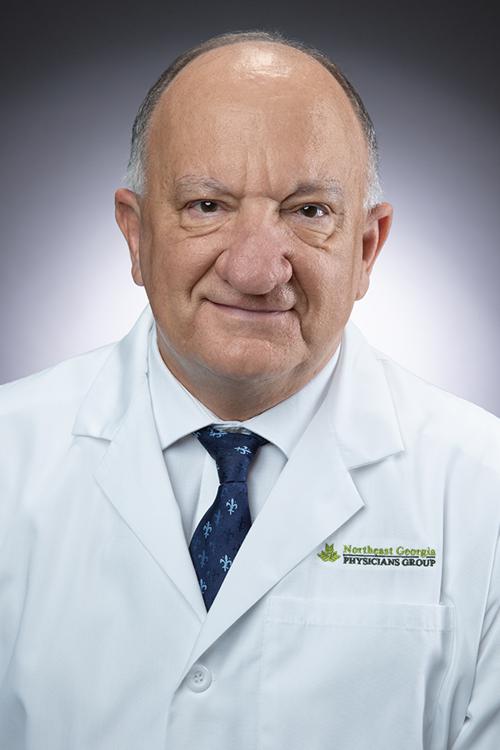If you’ve watched a news program on TV recently, you probably heard them talk about a new medication on the horizon for Alzheimer’s disease. Odds are, they probably also used the word “dementia.” How are the two connected?
Alzheimer’s disease and dementia are often mentioned almost in the same breath. There’s a good reason for that! While they aren’t the same thing, they are tightly connected.
Keep reading to get the facts about dementia, Alzheimer’s disease, and what they have in common.
Understanding dementia
You might think of dementia as being a specific medical condition. In reality, though, it’s what is known as an “umbrella term,” meaning it encompasses an entire category of conditions rather than just one.
Dementia is defined as a loss of cognitive functioning to an extent that disrupts daily life. Many different medical conditions can cause dementia.
While memory loss is often considered a right of passage when it comes to aging, there’s a difference between everyday memory loss and dementia. Occasionally forgetting where you put your car keys, why you went into a room, or even that your glasses are on the top of your head are normal bits of memory loss.
When those occasional memory misfires start happening more often or these lapses begin to disrupt your life or work, it may be dementia.
Along with causing issues with memory, dementia can also affect a person’s ability to pay attention, to communicate, to reason or judge, and to problem-solve. In some cases, it can even affect visual perception.
No longer being able to complete tasks independently, forgetting the name of an immediate family member, using the wrong words to reference familiar objects, and getting lost in a familiar setting are all examples of lapses that may be related to dementia.
Dementia can affect anyone of any age, but it is most common among older adults. Those who have a family history of dementia or who have had a traumatic brain injury are also at a higher risk.
Breaking down Alzheimer’s disease
Now that you have a good understanding of dementia, what about Alzheimer’s disease? We talked above about how dementia isn’t a single condition—it encompasses many different medical conditions. Alzheimer’s disease is one type of dementia.
In fact, Alzheimer’s is the most common form of dementia, accounting for up to 80% of all cases of dementia worldwide. The impact here at home in the United States is significant, with the National Institutes of Health estimating that more than 6 million Americans currently have Alzheimer’s disease.
Those who have Alzheimer’s disease face issues with memory, thinking, and behavior. Because the disease is a brain condition that worsens progressively over time, symptoms typically increase and become more severe.
As cells within the brain are damaged, memory and thinking skills are destroyed and the disease eventually leads to a complete loss of ability to interact with surroundings and other people. The condition can also progress to a point where speaking, walking, and even swallowing are difficult.
Memory loss might be the symptom you associate with Alzheimer’s disease (and dementia), but it isn’t the only symptom. Early signs of Alzheimer’s can include:
- Confusion related to time or place
- Difficulty completing familiar, routine tasks
- Difficulty making plans or solving problems
- Difficulty remembering newly learned information
- Diminished judgment
- Emerging problems with speaking or writing
- Misplacement of objects and an inability to retrace steps to find them
- Mood or personality changes
- Trouble understanding visual images or spatial relationships
- Withdrawal from enjoyable or routine activities, like work or hobbies
If you or someone you know are experiencing these symptoms on a recurring basis, check in with a primary care provider. He or she can perform a thorough exam, review your symptoms, and determine what additional testing might be helpful.
As with any condition, Alzheimer’s disease and other forms of dementia are best treated in their earliest stages. While there is no cure for Alzheimer’s disease, there are treatment options, including medications, that can alleviate symptoms and slow the progression of the disease.
Seeking care when symptoms first develop is important. An early diagnosis and start to a treatment plan can help with slowing dementia-related symptoms and other health issues that can occur in those who have dementia, such as mental health conditions and insomnia.
Support is also available after an Alzheimer’s diagnosis, both for patients and their loved ones. The best time to seek care is now.
Caring for someone with Alzheimer’s disease
If someone you love has been diagnosed with Alzheimer’s disease, or another type of dementia, you may have many questions. That’s entirely normal.
Talk with your loved one’s medical providers about support groups and other resources that may help you as you move forward. In the initial stages of dementia, you may be able to safely care for your loved one on your own, but as his or her condition advances, you will likely need additional resources, either in your home or in a skilled nursing facility.
When the condition progresses and your loved one’s life expectancy is six months or less, hospice may be recommended. This specialized type of medical care can provide support and services for both patients and their caregivers.
Through hospice, you’ll be able to access treatment to alleviate your loved one’s symptoms as much as possible, along with mental, emotional, and spiritual support for both the patient and family members. Hospice can also coordinate care for the patient and provide resources that connect you with services in the community and bereavement support after the loss of a loved one.
Learn More
Northeast Georgia Physicians Group Neurology treats a wide range of neurological conditions, including dementia. Call 770-219-6520 or click here for more information.



